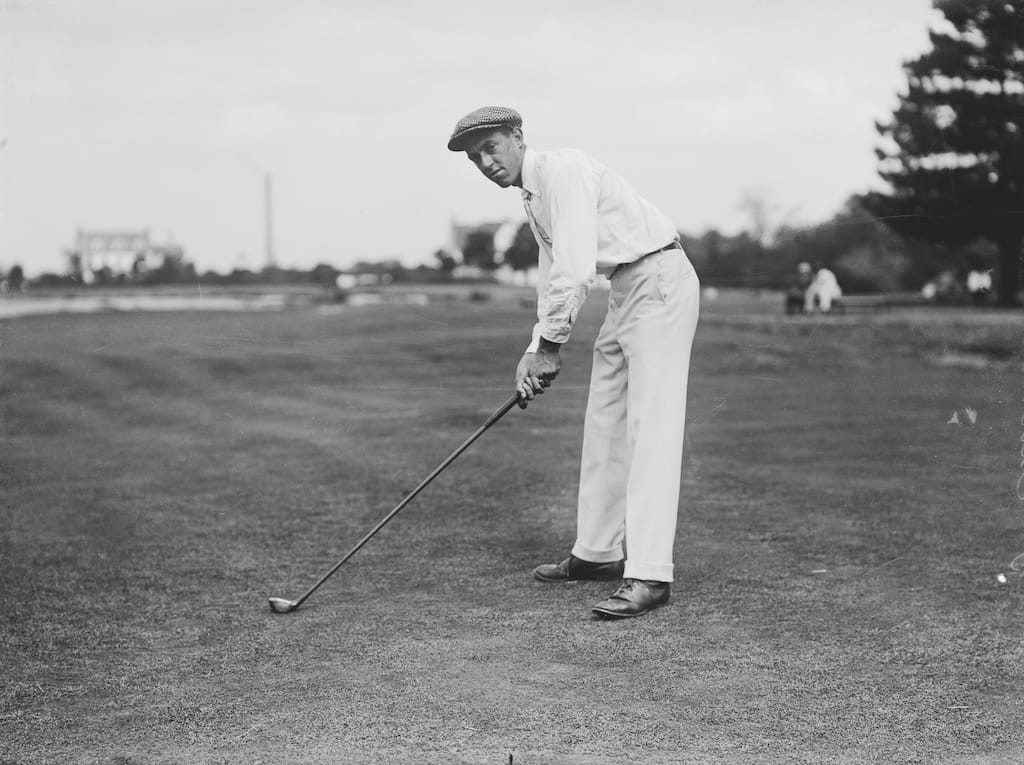Just in case you haven’t heard the whole story: a 20-year old occasional caddie at Brookline, who worked as a junior sales clerk in the golf department of Wannamaker’s Sports Store in downtown Boston, was prevailed upon by his golfing pals to reluctantly post a last minute entry for the 1913 US Open, which was due to take place a mere 100-yards ‘across the street’ from where he lived, and he went on to win the darn thing!
In the process, Francis Ouimet not only pulled off by far the biggest upset in golf history by beating the six-times Open Champion, Harry Vardon and Ted Ray (who subsequently won both The Open and US Open) in a dramatic 36-holes play off but, in so doing was responsible for bringing the game onto the front pages of the national press at a time when golf of any description only rarely appeared on the back (sports) page. It was the impetus that created an ‘explosion’ of interest in what was until then a largely ignored sporting pursuit.
The impact of Ouimet’s victory cannot be overemphasised. In subsequent years, Ouimet not only became America’s first golf hero but he did more to grow the game than almost any other ‘water shed’ personality including Old Tom Morris of St. Andrews, Harry Vardon, Bob Jones, Arnold Palmer and Tiger Woods.
One could be justified in saying that Francis Ouimet is the most impactful figure in the history of golf. Without ever turning professional, Francis was a top competitor and administrator of note for a major portion of his life (1893-1967) He continued to play in the big amateur championships on both sides of the Atlantic for another forty years while, at the same time, becoming an important administrator, including being a key figure on behalf of Wanamaker’s, the original sponsor of the PGA of America at their foundation meeting in 1916.
Ouimet did not enjoy a formal education but he combined a modest, warm personality and natural humility with his working-class roots and sharp intellect to embrace every opportunity to push back the prevailing perception that golf was only for rich, elderly, and influential people. By the mid 1920s, the number of American golf courses had doubled and the number of golfers had increased from 350,000 in 1913 to over 2 million.
Mark Frost authored one of the finest golf books ever written – The Greatest Game Ever Played – which tells the full story from behind the scenes in the clubhouse and locker room to a blow-by-blow account of what happened on the golf course during the 1913 US Open. My paperback copy of Frost’s book runs to 472 pages but Ouimet’s own autobiography A Game of Golf , devotes a mere 10 pages to the entire tournament. Make of that what you will.
Ouimet’s distinguished amateur career included winning the US Amateur in 1914 and 1931. He played in the first eight Walker Cup Matches and captained the USA in the next four. And, he became the first American to be elected captain of the Royal and Ancient Golf Club of St. Andrews in 1951.
Both Francis and his (almost) equally famous caddie at Brookline, Eddie Lowery, competed in The (British) Amateur Championship at Portmarnock in 1949. Ouimet lost in the second round to Brennie Scannell (Woodbrook). While, Lowery bowed out in the fourth round to another American Frank Stranahan, the defending champion and hot favourite to win. The 1949 championship was, of course, famously won by Max McCready of Sunningdale GC, England & Dunmurry GC, Belfast.























Leave a comment